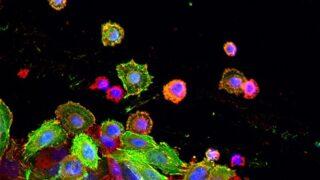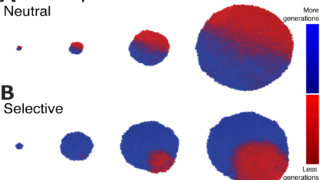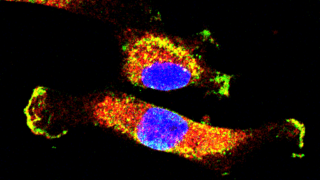Tag: Genetics
Search News
Categories
Archives
SNPnexus in the fight against COVID-19
8th February 2021
Researchers from Barts Cancer Institute, Queen Mary University of London, have released a web-based tool called SNPnexus COVID to streamline the analysis of host genetic sequencing data and allow for the identification and prioritisation of genetic variants that may impact an individual’s susceptibility to and the severity of COVID-19 infection.
Read moreResearch explainer with Dr Gabriella Ficz
28th September 2020
We spoke with Dr Gabriela Ficz to find out about her recent publication in Nature Communications. The study set out to determine how embryonic stem cells can acquire features that are found in cancer cells.
Read moreImmune ‘cloaking’ in cancer cells
14th September 2020
Researchers have created a mathematical model that can determine the impact of the immune system on tumour evolution. The information gained from using this model may be able to be used to predict whether immunotherapy is likely to be effective for a patient’s cancer, helping to guide treatment decisions.
Read moreUsing AI to study tumour evolution
2nd September 2020
Researchers have developed a computation model that can reconstruct the evolutionary history of cancer. By unravelling the genetic complexity of a tumour, the tool can be used to better understand how the cancer has developed and may help to guide treatment strategies in the future.
Read moreEvolutionary Insights: From cancer to corals
27th August 2020
Dr Benjamin Werner has teamed up with evolutionary ecologists as part of a new research collaboration, funded by a $1 million research grant from the Human Frontier Science Program.
Read moreUnravelling the circuitry that controls cancer growth and spread
23rd June 2020
Research reveals novel insights into the molecular circuitry controlling cancer cell growth and spread. The findings highlight new pathways involved in these key processes of cancer progression that may represent targets for therapies.
Read more





